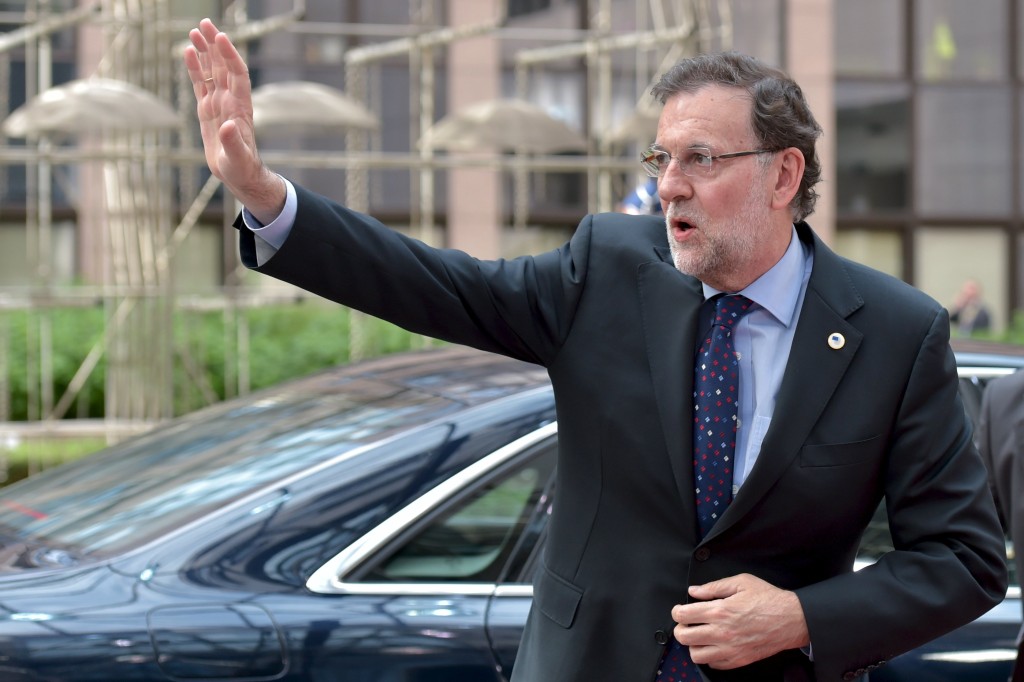Government casts nervy glances at Athens, as all parties struggle to make sense of consequences
Athens may be more than 2,300 kilometres away from Madrid, but the shadow of the debt crisis in Greece is casting a long shadow over Spanish politics.
This week, politicians on both sides of the ideological spectrum rushed onto the airwaves as they struggled to take in the impact of the stunning 61-percent-strong resounding “no” in the Greek referendum on Sunday.
The stakes are high. With parliamentary elections just five months away, anti-austerity upstarts Podemos (“We can”) are now all but tied with the ruling Popular Party (PP) and the Socialists (PSOE). Polling data puts the parties within 1.5 percent of each other, raising the possibility of coalition government. Another newcomer, Ciudadanos, is also gaining ground on the top three.
Spain, which for so long has struggled with its own stuttering economy and high unemployment, is getting better with the number of jobless in the country dropping five months in a row (it still stands at an eye-watering 24 percent, but is dropping) and the economy growing each month. But investors are wary, considering the recovery to fragile and things can change very quickly. A “Grexit” might alter the situation.
As press conferences were organized and ministers spoke to newspapers and radio stations, Spain’s traditional governing parties, the PP and the PSOE, quickly looked to redefine their positions on the vote. In recent weeks, they had seemed to become increasingly hardline over Greece, insisting a “no” vote would mean an exit from the euro. Now, they were more conciliatory in tone.
For anti-austerity party Podemos meanwhile, the vote was cause for celebration — even vindication.
Already on the up after taking a large chunk of the vote in Spain’s recent local elections, Syriza — their closest European allies and the dominant party in the Greek coalition government — had secured a hugely significant victory which demanded Europe take note.
Podemos leader Pablo Iglesias decried European “interferences, manipulations and lies” ahead of the referendum at a press conference but strangely enough, for once he put across a message that echoed that being delivered by the mainstream politicians on other channels.
Spain, all sides were eager to point out, is not Greece.
‘No sense to draw parallels’
On Monday, charasmatic pony-tailed professor Pablo Iglesias held court before journalists in Madrid.
He acknowledged a change in the PP government’s position, calling the new stance “reasonable,” and praised Greeks for saying no to further austerity measures from Europe.
“It’s good news for Europeans and Greek citizens,” Iglesias told journalists. “The people of Greece have said they want change, they support a government who says that things can be done in a different way.”
On the face of it, the result was as perfect as possible for Podemos. It was not just a “no,” but a resounding “no.”
“It’s good news for Europeans and Greek citizens,” Iglesias told journalists. “The people of Greece have said they want change, they support a government who says that things can be done in a different way.”
But although Iglesias praised Tsipras — the two are known to be close — and Syriza for their victory, Iglesias was keen to underline the differences between the two countries’ economies. Some analysts in the liberal press in Europe saw this a pitch to moderate voters, who will need to back Iglesias’ party if the PP is to emerge as victor in December’s elections. Others suggested that Podemos is concerned that Greece will be financially hamstrung for years to come and association with the situation through Syriza will not benefit the party.
“We have a great friendship with Syriza… but Spain is not Greece,” Iglesias told the Cadena Ser radio station in an interview also on Monday. “We’re an economy with much more weight in the eurozone… with a stronger administration and with a better economic situation. The circumstances are different and I think it makes no sense to draw parallels.”
Iglesias’ conclusion was the same as the PP’s and the PSOE’s. Yes, Spain needed EU funds to rescue its banks, but it is now out of the woods.
A change in tack
“If he (Greek Prime Minister Alexis Tsipras) wins the referendum, Greece has no other alternative other than to leave the euro,” PP leader and Prime Minister Mariano Rajoy told one radio station last Tuesday.
Rajoy aped the stance of the EU’s main leaders, painting the referendum as a vote on the euro. Rajoy urged Greeks to do all they could to retain the currency which was, he said, “an irreversible project.”
Prior to the referendum, the Spanish government was clear: first, a “no” vote means “Grexit” and second, the PP’s austerity reforms had protected the country. For the alternative approach, PP Vice-President Fernando Martínez-Maillo said, look at Greece.
It was a clear shift, a bid to offer a more conciliatory tone to the Greek government. Madrid now wanted the crisis to be resolved in talks, as soon as possible.
But when the extent of Sunday’s referendum became clear, Economy Minister Luis de Guindos faced the cameras and instantly moderated the PP’s hardline stance. “We are all absolutely committed to the stability of the single currency,” de Guindos said, before adding that Madrid was open to discussing a third bailout package for Greece. Athens, the minister said, had “all the right in the world” to ask for a new rescue package.
It was a clear shift, a bid to offer a more conciliatory tone to the Greek government. Madrid now wanted the crisis to be resolved in talks, as soon as possible.
At the same time, Socialist leader Pedro Sánchez was redrawing his party line. He asked the EU to show “solidarity” with Greece by drafting a public investments plan and guaranteeing its financial liquidity. “We must accelerate things, clearly set how negotiations must take place because we can’t go on this way,” Rajoy said in an interview, confirming the new approach. “We have negotiated, we will keep negotiating but we must now conclude the negotiations quickly.”
Rajoy admitted to reporters that the crisis was having a negative impact on Spain and repeated his party’s claim that the country was protected from spillovers.
The chances of that claim being put to the test seem to be increasing by the day. And with countries such as the United States and China warning about the potential impact of a “Grexit” on their countries and on the European Union (EU) as a whole, perhaps it’s preferable that such a challenge is not confronted.
On that, Spain’s three biggest parties (at the moment) are united. All three say Greece is not Spain, but all three seen to be worried nonetheless about the potential fallout and its impact on December’s vote.
Last night, as negotiations restarted in Brussels, the temporary agreement of the PP and the Podemos seemed to have been broken. Iglesias was once again on the attack.
“Europe is not built by slamming the doors shut. Rajoy forgets that there are governments who refuse to betray their people,” he wrote on Twitter. It begins again.
@URLgoeshere
Originally published in the Buenos Aires Herald, on Wednesday, July 8, 2015.
Link: http://www.buenosairesherald.com/article/193449/spain-scrambles-in-shadow-of-greek-contagion.


